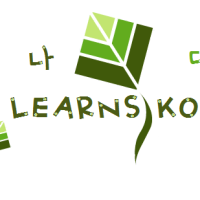Ever since I was a young kid, I had a very active sense of imagination. I didn’t see any imaginary characters or anything as a kid but I used to imagine ‘situations’ that would possibly follow an event that I witnessed. I remember gathering my friends and telling them that since our teacher or a friend said this today or did this today, she will most probably do this or say this tomorrow. “You wait for it!” I would say. (지금 보면 어릴때부터 눈치 빠른 것 같기도 하고요.)
I was fascinated by supernatural powers (초능력). My earliest memory of learning about supernatural powers was probably from the cartoon show called Barbapapa, a French animation series which originally started in 1973. It used to be telecasted in our national TV channel years later, probably when I was 5 or 6 years old. It featured a family of shape-shifting blobs who could change their body shapes into anything they wanted. I was absolutely amazed by the Barbapapas and I really loved the show. To this day, I am quite animated to talk about the show and am thrilled to meet anyone who remembers watching it and shares childhood memories similar to mine.
Another huge influencers to this interest, I would say, were two other American classic fantasy sitcoms “I dream of Jeannie” or simply Genie, as we called it and “Bewitched”, which featured supernatural beings as the lead characters: the 2,000-year old Genie and the Witch, who could do anything with a blink of her eyes or a spell.
 Since then I wished I had dozens of supernatural powers both as a kid as well as an adult. Strangely though I always believed from a very early age that supernatural powers do not or cannot exist in real life. So I only wished and longed for them. Some of the supernatural powers that I wished I had included: 순간이동 (Teleportation), 텔레파시 (Telepathy), 순간기억능력 (Photographic Memory), 양손잡이 (Ambidexterity), 음악, 무용, 미술에 뛰어난 능력 (Enhanced skills in Music, Dance, Art), 시간 여행 할수 있는 능력 (Time Travel), 투명 인간 (Invisibility), Ability to fix broken things or construct things, and Of course, the ability to understand and speak all languages (I think it’s called Aligist or something like that).
Since then I wished I had dozens of supernatural powers both as a kid as well as an adult. Strangely though I always believed from a very early age that supernatural powers do not or cannot exist in real life. So I only wished and longed for them. Some of the supernatural powers that I wished I had included: 순간이동 (Teleportation), 텔레파시 (Telepathy), 순간기억능력 (Photographic Memory), 양손잡이 (Ambidexterity), 음악, 무용, 미술에 뛰어난 능력 (Enhanced skills in Music, Dance, Art), 시간 여행 할수 있는 능력 (Time Travel), 투명 인간 (Invisibility), Ability to fix broken things or construct things, and Of course, the ability to understand and speak all languages (I think it’s called Aligist or something like that).
Continue reading











Recent Comments